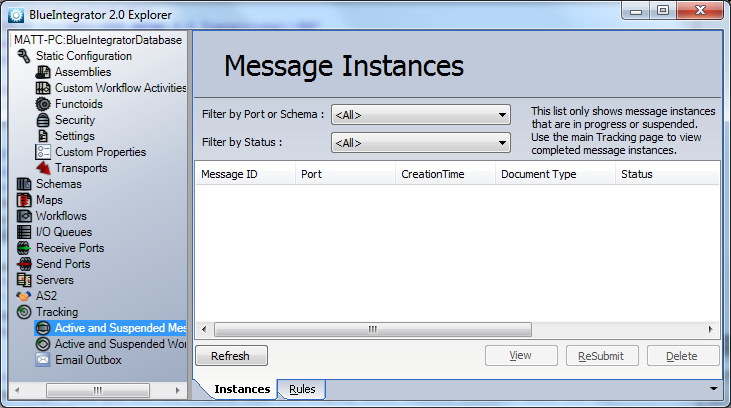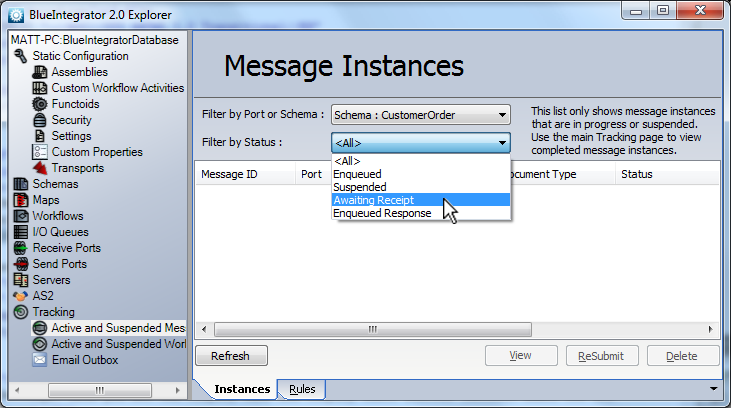Help
Tracking Messages
Help menu
- Help content
- AS2
- Examples and Tutorials
- IO Queues and Forms
- Maps
- Schemas
- Send and Receive Ports
- Send and Receive Ports / Transports
- Servers
- Static Configuration
- Tracking
- Workflows
- Workflows / Workflow Activities
- Call Web Service Direct Activity
- Compensatable Sequence Activity
- Compensatable Transaction Scope Activity
- Compensate Activity
- Conditioned Activity Group
- Database Activity
- Delay Activity
- Event Handling Scope Activity
- Event Driven Activity
- Expression Activity
- Fault Handler Activity
- If Else Activity
- Increment Activity
- Invoke Web Service Activity
- Invoke Blue Integrator Workflow Activity
- Invoke Workflow Activity
- Listen Activity
- Map Activity
- Parallel Activity
- Policy Activity
- Send Receive Port Response Activity
- Replicator Activity
- Send Receive Port Response Activity
- Send Port Message Activity
- Sequence Activity
- Suspend Activity
- Synchronization Scope Activity
- Transaction Scope Activity
- While Activity
The Tracking option from Blue Integrator Explorer lets you examine active and suspended messages in more detail by clicking on that option in the Explorer interface:

The top of the Message Instances pane allows you to filter the results by schemas or display all schemas, as well as filter by the status of the messages. You could, for example, display all messages that are Awaiting Request for a particular schema by selecting those options from the drop-down menus:

When the results are displayed, you can see specifics of any message using the View button.
You can create Rules for handling failed messages within the Tracking system. See Message Rules for Failure Handling for more information.

